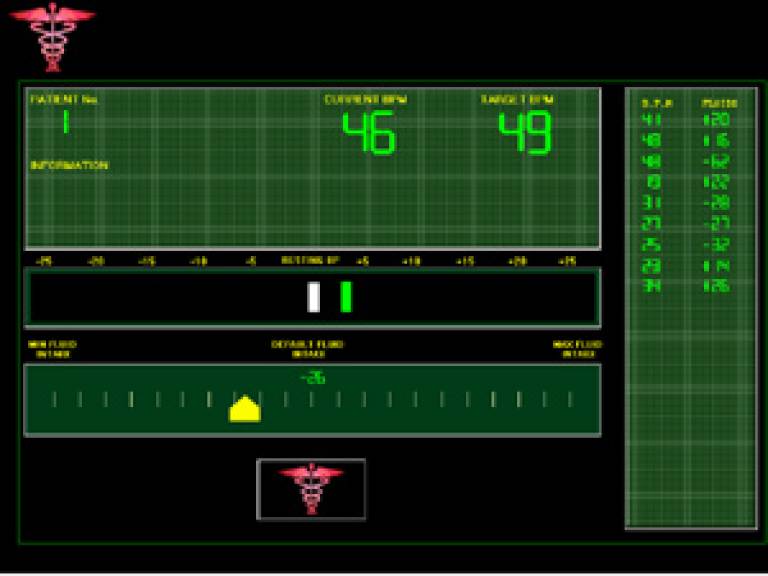Under pressure
25 May 2004
As part of an investigation into how people learn to gain control of complex situations Professor Nigel Harvey and Mr Damien Forrest, from UCL's Department of Psychology, have devised a number of novel computer simulations.
 The research
takes place in the Science Museum's 'Who am I?' gallery and
allows visitors to take part in two scenarios which test how they would cope
with stopping a satellite crashing to earth or keeping a patient alive on an
operating table.
The research
takes place in the Science Museum's 'Who am I?' gallery and
allows visitors to take part in two scenarios which test how they would cope
with stopping a satellite crashing to earth or keeping a patient alive on an
operating table.
The operating table scenario puts a virtual patient's life in the hands of a member of the public who then has to keep them stable by administering the correct levels of fluid. The patient's current heart-rate is shown on the left of the screen while the target heart-rate appears on the right. The participant needs to alter the fluid intake in order to achieve the target rate - too much fluid and the pulse-rate drops, too little and the pulse begins to race.
From the results so far most people are, with practice, able to stabilise the patient, or satellite but are unable to explain the rules behind the tasks. "When this relationship is very simple, people can learn the task by trial-and-error. But when the relationship is more complex - dynamic, non-linear, multifactorial - improvement with practice is slow or non-existent," explains Forrest.
The study hopes to find out if people can understand the nature of the relationship between their actions and the effects that they have. "We're interested in finding out when you get learning and when you don't", comments Professor Harvey.
Image: Operating table simulator.
To find out more about the experiment, which runs at the Science Museum as part
of their Live Science programme until 5 June 2004, follow the link below.
Link: Science Museum
 Close
Close

